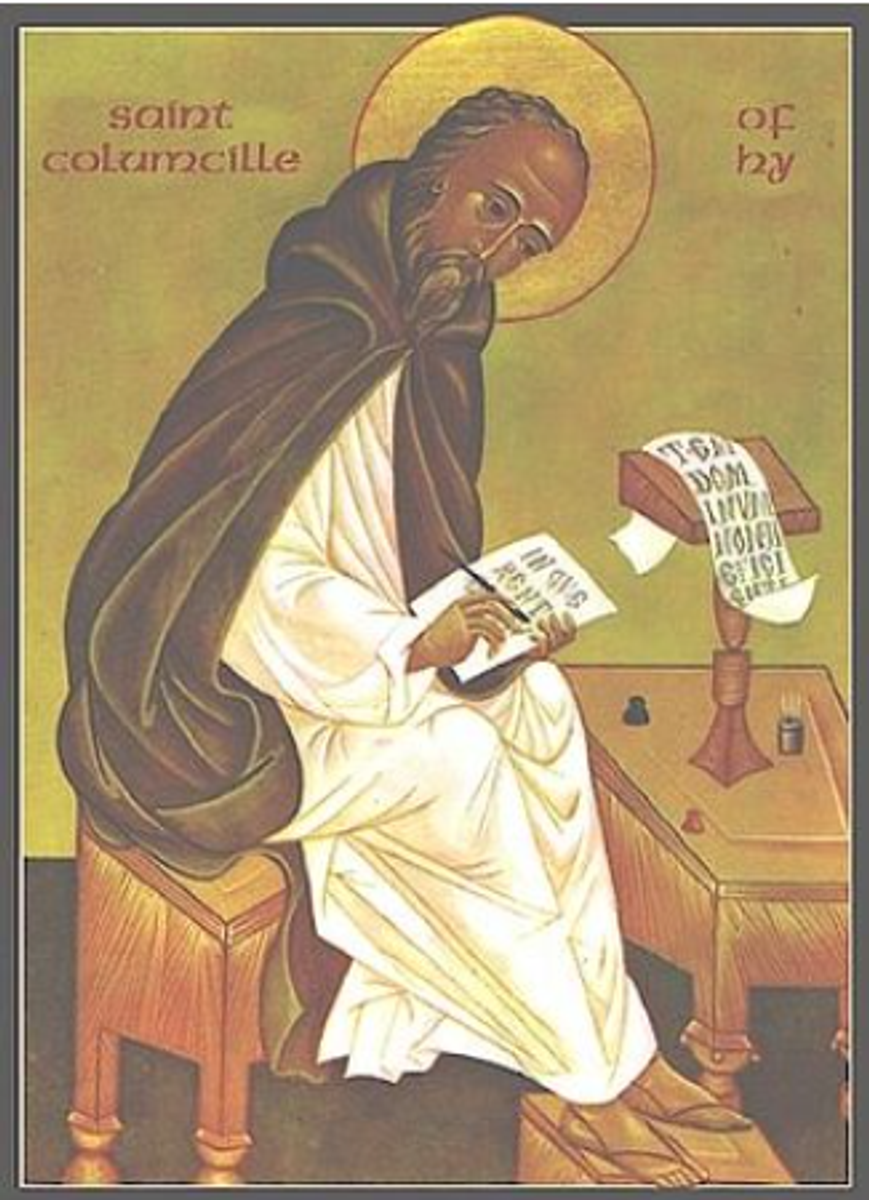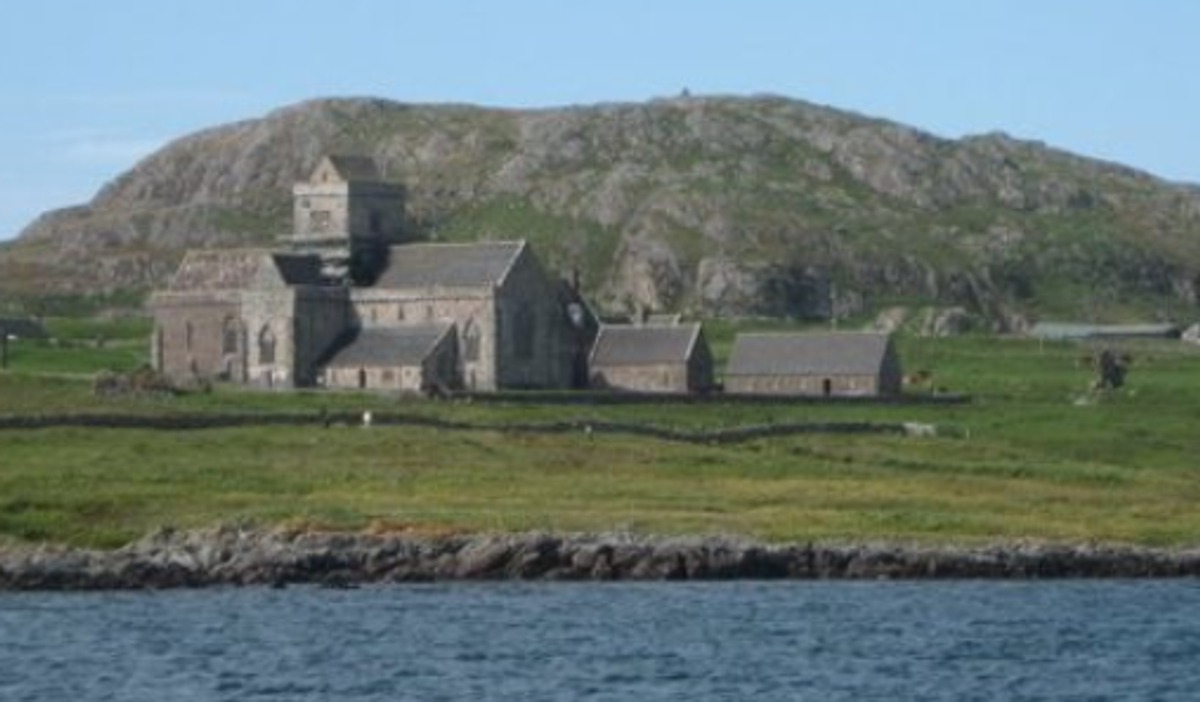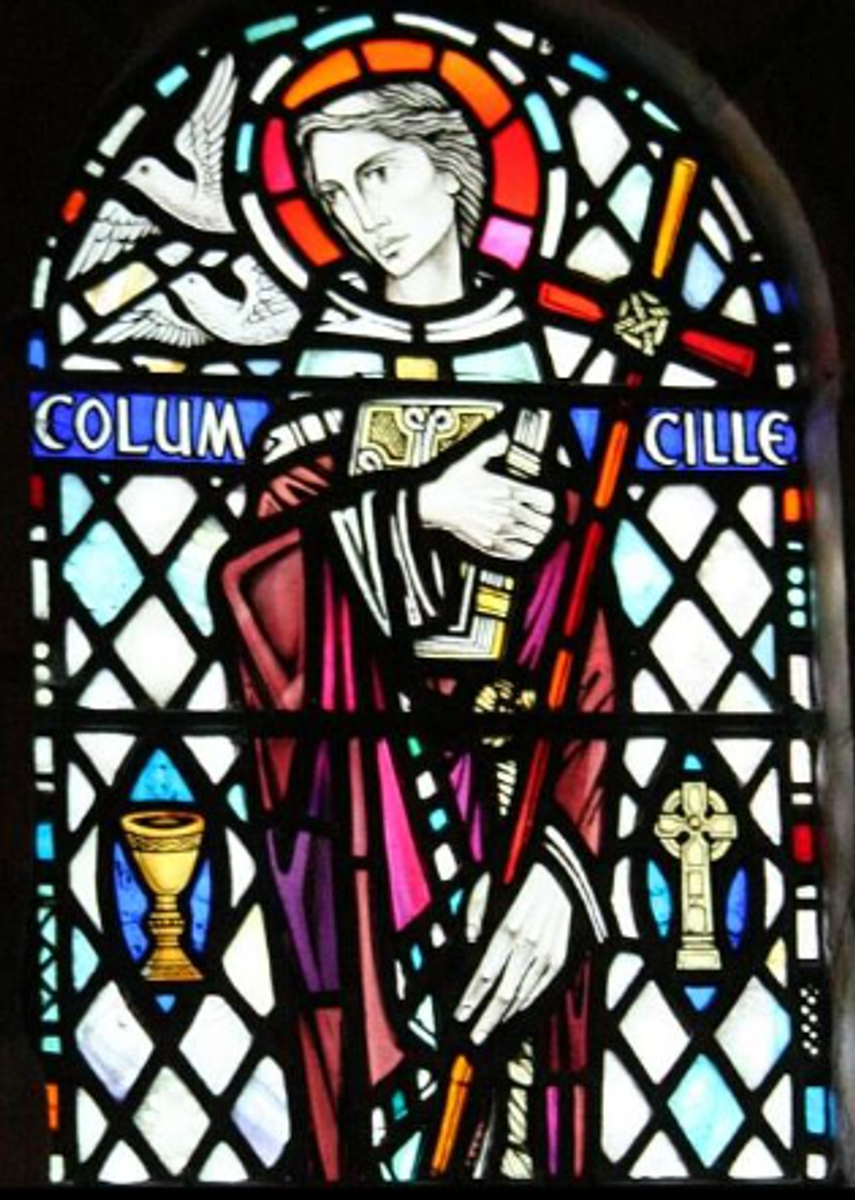Parish News

Feast Day of St Colmcille - Sunday, June 9th, 2024
Did You Know?
St Brigid’s Parish had four Mass Centres, St Brigid’s Gisborne, St Ambrose’s Riddells Creek, St Patrick’s Macedon and St Colmcille’s Bullengarook.
Our Parish History collated by Leo Duggan, tells us that St Colmcille’s was originally established as a school building for the strong Irish Catholic families that lived in and around Bullengarook. There is no record of when the first Mass was celebrated but we know that mass was offered there frequently until the 1940s. The front gate is the only remains we have of our Bullengarook church.
Who was St Colmcille?
St Colmcille [pronounced collum.kill] was one of the three Patron Saints of Ireland as well as Patron Saint of floods and bookbinders. The other two patron saints of Ireland are St Brigid and St Patrick. He was also known as Columba, a Latin version of Colum. The 'cille' suffix that was added to the end of his name means 'of the churches'.
Colmcille, meaning “the dove of the Church” in Gaelic, or Columba was born on December 7th at Gartan in County Donegal, in 520 or 521. He died in the year 597 AD- at the impressive age of 75.T
A young Colmcille entered the priesthood at the age of 20 when he became a pupil at Clonard Abbey, situated on the River Boyne in modern day Co. Meath. When a prince cousin gave him some land at Derry, he decided to start his own monastery. This allowed him to travel throughout Northern Ireland teaching the pagans about Christianity. Colmcille founded some 30 monasteries in just 10 years, inspiring many people with his personal holiness.
Troublemaker
Nevertheless, Colmcille was no angel. His strong personality and forceful preaching ruffled feathers and in 563 AD he was accused of starting a war between two Irish tribes. After the death of Prince Curnan of Connaught – who Colmcille was meant to protect – a number of clerics and scholars threatened to excommunicate him. Instead, Colmcille was sentenced by the high king never to see Ireland again, and was exiled to Scotland with 12 companions. He settled on a bleak Scottish island called Iona where he would spent most of his remaining years.
Once settled, the Irish monk set about converting most of pagan Scotland and northern England to the Christian faith. Iona’s fame as a missionary centre and outstanding place of learning eventually spread throughout Europe, turning it into a place of pilgrimage for several centuries to come. Iona became a sacred isle where kings of Scotland (48), Ireland (4) and Norway (8) were buried.
PEACEKEEPER
In 575 Colmcille was persuaded to visit Ireland to mediate a dispute between the high king and the league of poets. Insisting on remaining faithful to the terms of his exile, that he never ‘see’ Ireland again, he travelled blindfolded. His considerable reputation was respected by everyone in Ireland. He spoke to the assembled nobles and clergy with such force and authority that the king was persuaded to calm hostilities. Colmcille spent the rest of his life on Iona praying, fasting, and teaching his monks to read and copy the Scriptures.
INTELLECTUAL
He was a renowned ‘man of letters’, wrote several hymns and has been credited with having transcribed over 300 books and manuscripts. Colmcille died on Iona and was buried in 597 by his monks in the abbey he created. In 794 the Vikings descended on Iona and plundered much of the relics Colmcille had procured in his life as an intellectual.
MIRACLE MAKER
A number of miracles have been attributed to St Colmcille – such as healing people with diseases, expelling malignant spirits, subduing wild beasts, calming storms, and even returning the dead to life.
He is also said to have performed ‘agricultural miracles’ that would hold a special significance to the common people of Ireland and the British Isles, such as when he casted a demon out of a pail and restored spilt milk to its container.
As well as being one of the three patron saints of Ireland, St Colmcille is also the patron saint of the city of Derry – where he founded a monastic settlement in 540 AD.
As he spent much of the second half of his life there, St Colmcille has a strong connection to Scotland. The Clan Malcolm/Clan McCallum claims its name from Colmcille and was reputedly founded by his descendants.




